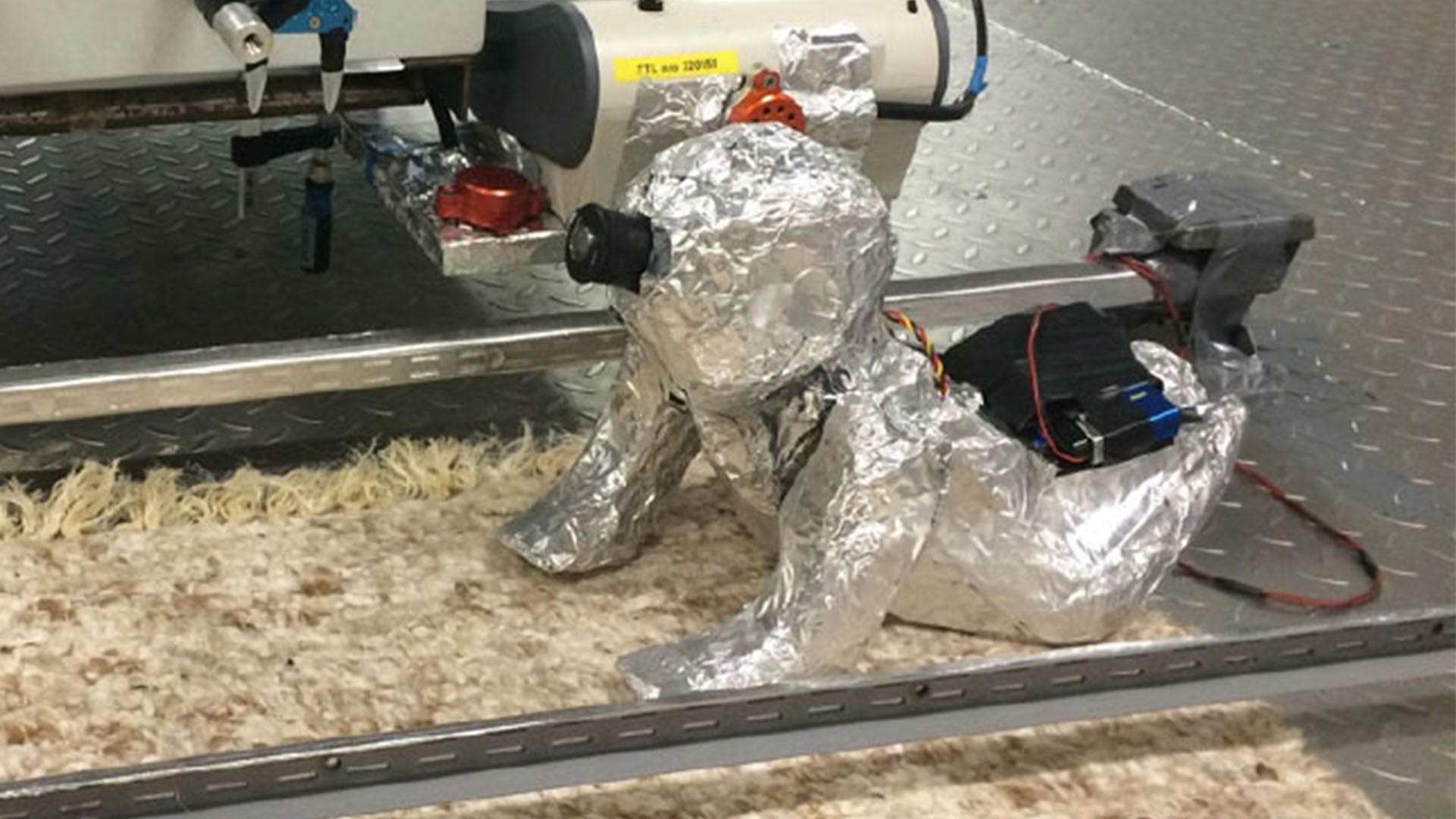
Updated | A baby's first steps may be a precious moment, but before taking those first few wobbles, a crawling child collects and inhales millions of particles of dirt, bacteria and other filth. A new study that deployed a crawling robot baby reveals just how much disgusting biological materials babies collect as they scuffle adorably across a carpet.
It may sound unsanitary, but there might be some benefit to their teeny bodies gathering the microscopic bits left behind on the floor.
"There are studies that have shown that being exposed to a high diversity and concentration of biological materials may reduce the prevalence of asthma and allergies later in life," lead researcher Brandon Boor, an assistant engineering professor at Purdue University, said in a statement.
Among that research is a 2014 study which found that babies exposed to household germs, pet and rodent dander may have a lower allergy and asthma risk.
Related: Cleaning Products May Increase Your Risk Of Chronic Lung Diseases Like Asthma, Study Shows
In order to understand what a baby is breathing in as they crawl, Boor and his colleagues built an unusual item: a robotic baby covered in aluminum foil. In the video below, the baby robot is shown crawling across a small piece of carpet. Carpets used in the experiment weren't part of the lab, but had been taken from peoples' homes. The researchers used a special instrument, which classifies particles, to determine what was floating around the robotic body.
"The instrument uses lasers to cause biological material to fluoresce," Boor explained. "Most bacterial cells, fungal spores, and pollen particles are fluorescent, so they can be reliably distinguished from non-biological material in the air."
Their findings, published in November in the journal Environmental Science & Technology, also revealed that a small, concentrated cloud of filth floats around babies at much higher levels than say, if an adult were walking around. Once those particles are lifted from the carpet many of them float around and end up in the child's lower airways.
Related: Processed Meat Could Aggravate Asthma, French Study Finds
Although watching the tin foil robotic baby crawl is amusing, there's an important takeaway from the research.
"Parents should be aware that their children are exposed to microbes and allergens as they crawl across the carpet," Boor explained in a video. "As for the health effects of the exposure to these microbes, I think a lot of the research suggests that there can be both adverse effects and protective effects."
In the future, Boor hopes to explore how different types of locomotion, like crib movement, and various surfaces, such as hardwood, impact air quality for infants.
"I hope to go a little bit deeper than this simple robot," Boor told Newsweek. "With infants, especially in their first year of life, there's such complex forms of movements and the robot only stimulated one form of crawling. There's also modified belly crawling."
Understanding children's exposure to these types of particles is especially important considering more than 6 million children in the U.S. suffer from asthma, according to data from the Centers for Disease Control and Prevention. If nothing else, the robot baby experiment might inspire parents to run the vacuum—at least now and then.
This article has been updated to include additional quotes from Brandon Boor.
Uncommon Knowledge
Newsweek is committed to challenging conventional wisdom and finding connections in the search for common ground.
Newsweek is committed to challenging conventional wisdom and finding connections in the search for common ground.
About the writer
To read how Newsweek uses AI as a newsroom tool, Click here.








